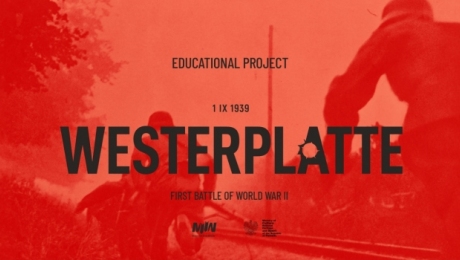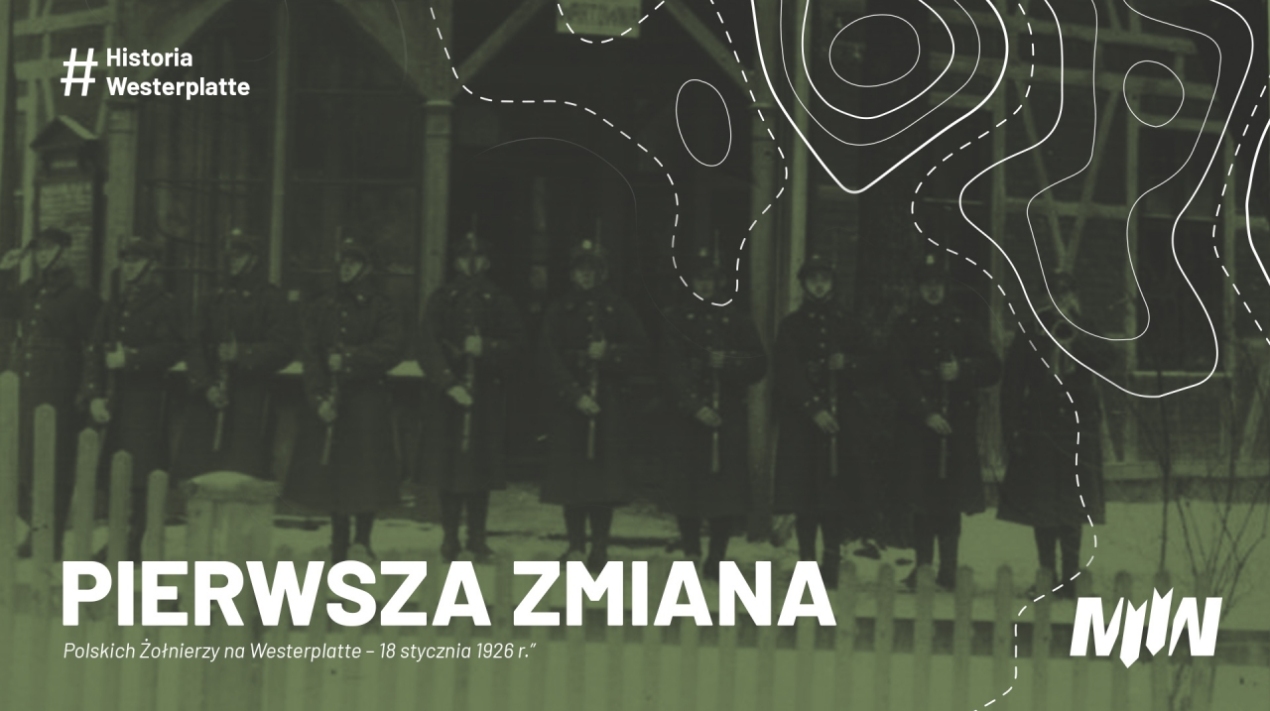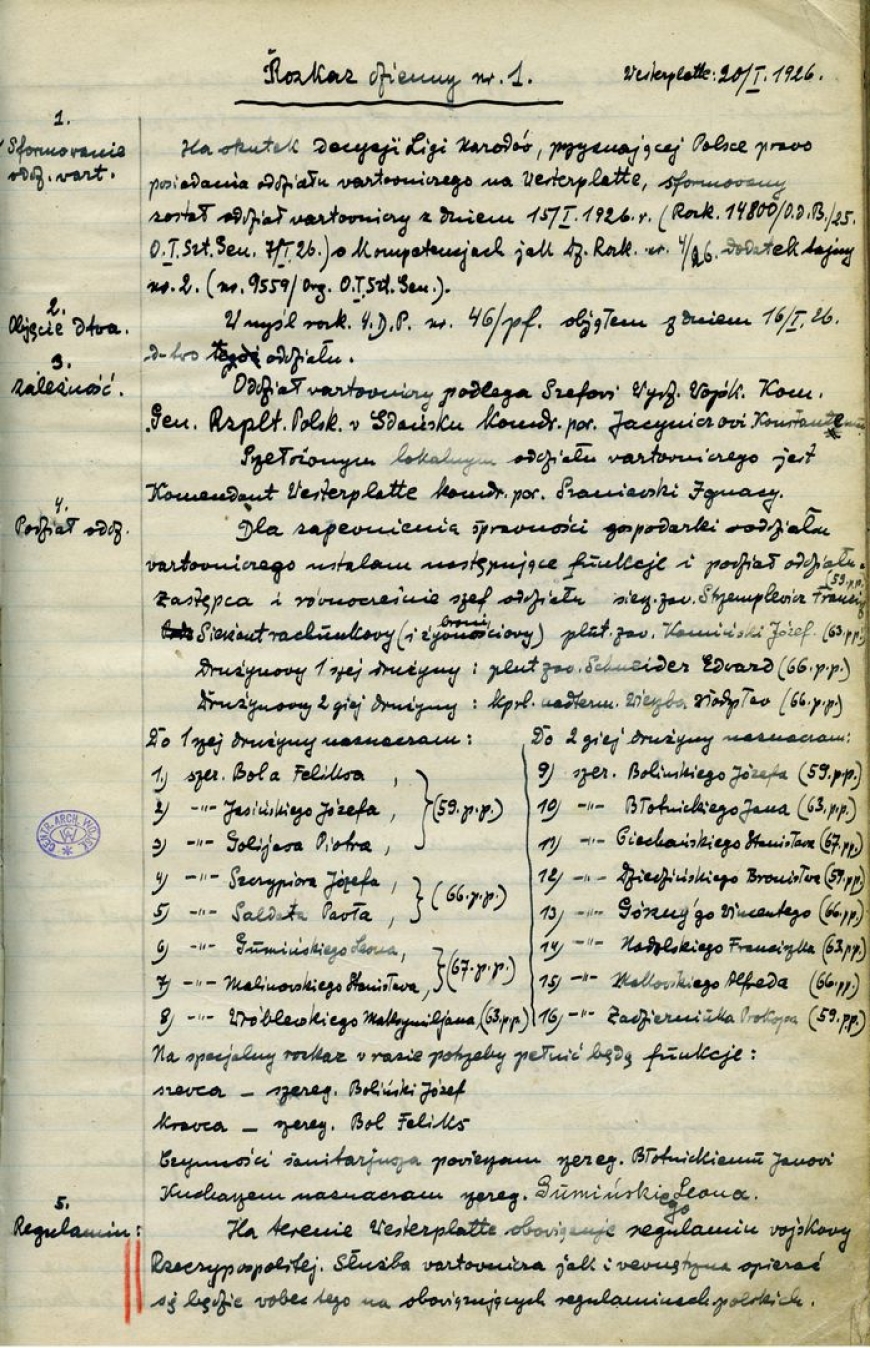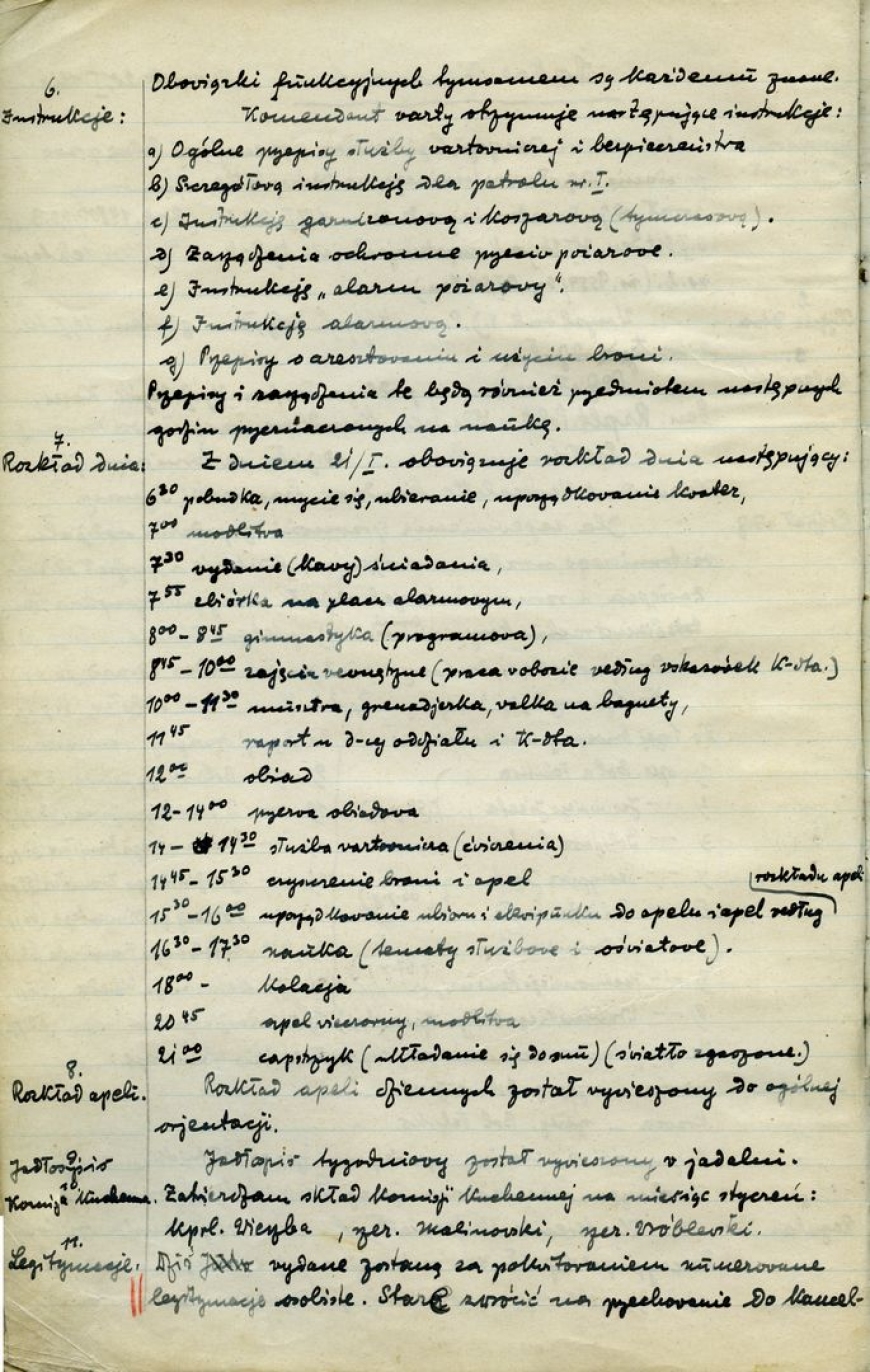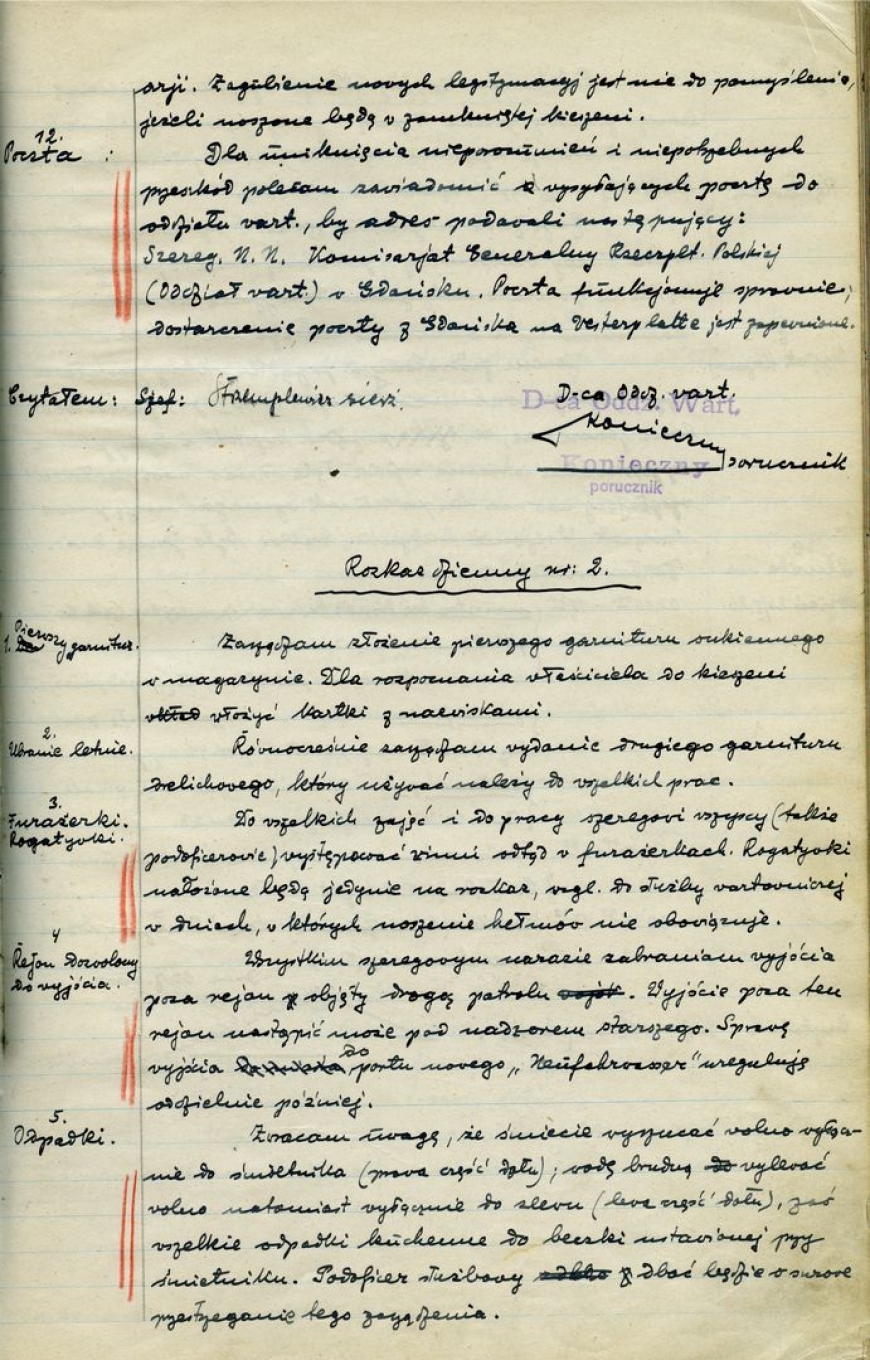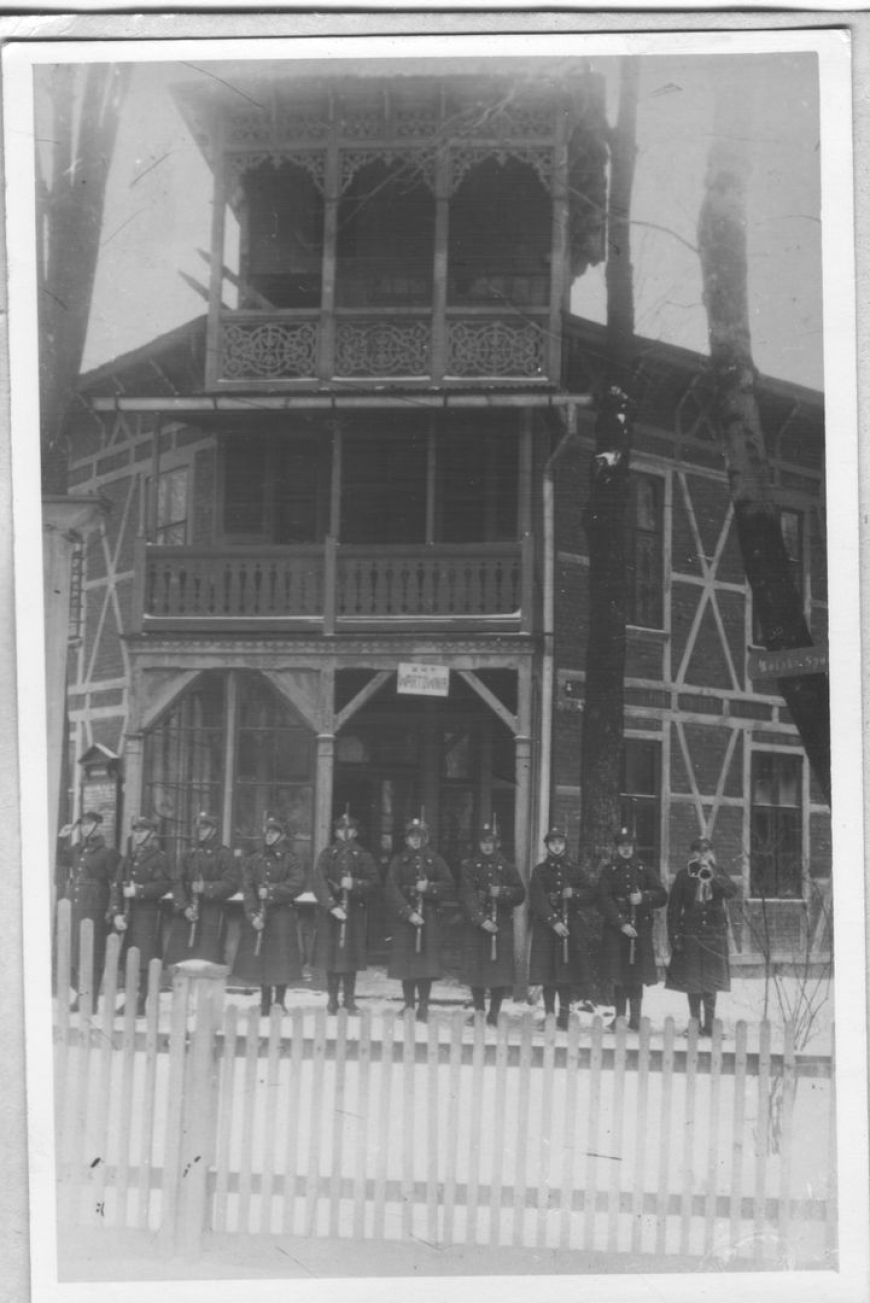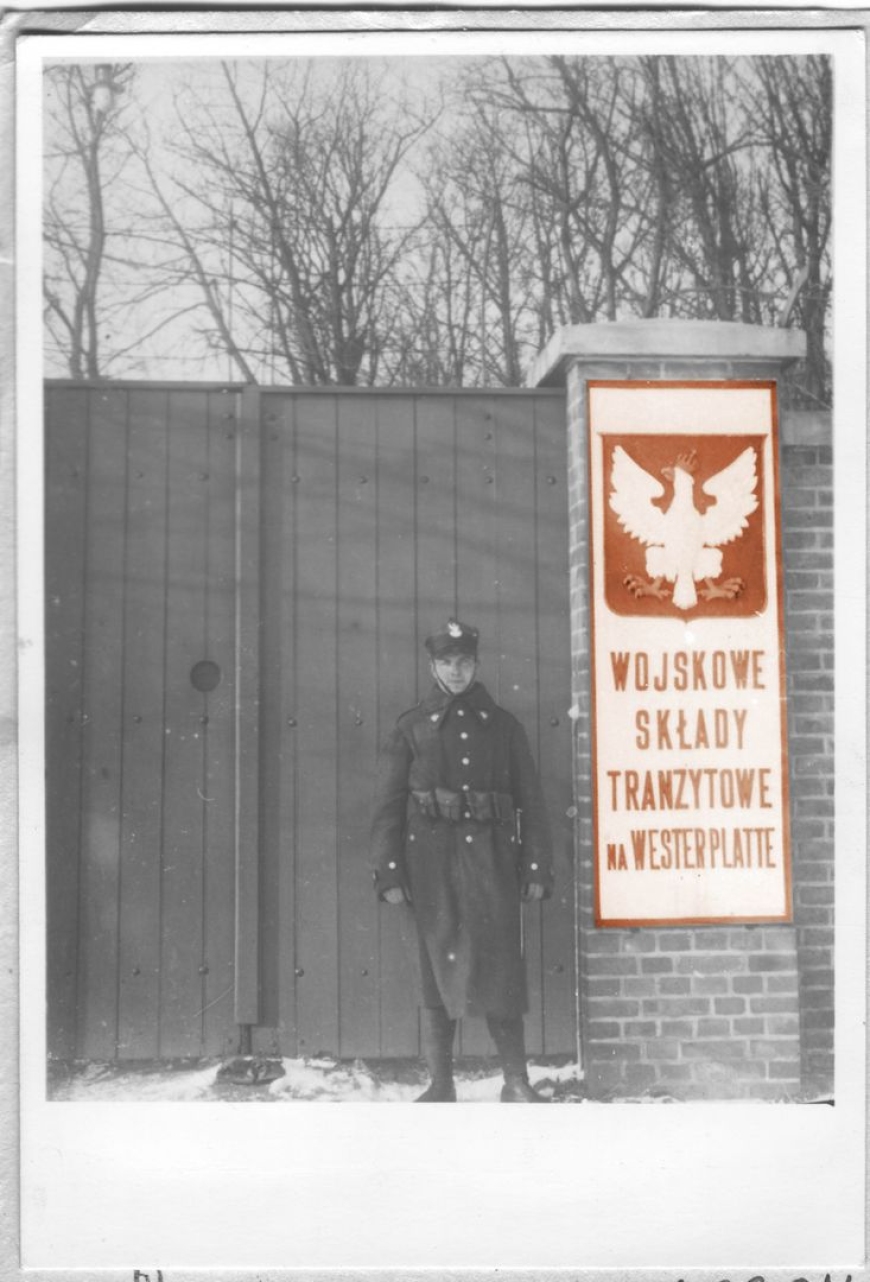#WesterplatteHistory - First guard unit on Westerplatte
The arrival of the first guard unit on Westerplatte, formed by the forces of the 4th Infantry Division, marked the beginning of Poland's military presence at the entrance to the port of Gdańsk. Due to the League of Nations' decision coming into effect, Poland had the right to maintain a permanent unit on Westerplatte. By the order of the Chief of the General Staff dated January 7th, 1926, a guard unit was formed, consisting of 16 privates, 4 non-commissioned officers, and a guard commander. On January 18th, 1925, Commander Ignacy Szaniewski was appointed as the Commandant of the Depot, who, two days later, solemnly received the report from the guard unit in the ammunition depot on Westerplatte, in accordance with the first order.
Lieutenant Stefan Konieczny became the commander of the first guard unit on Westerplatte. The officers of the permanent garrison on Westerplatte were subject to the Chief of the Military Department of the General Commissariat of the Republic of Poland in Gdańsk, Commander Lieutenant Konstanty Jacynicz. According to the daily order of the guard unit commander on Westerplatte dated January 20th, 1926, the unit was divided as follows:
For the first platoon, were designated:
- Private Feliks Bala (59th Infantry Regiment),
- Private Józef Jasiński (59th Infantry Regiment),
- Private Piotr Golijas (59th Infantry Regiment),
- Private Józef Szczypior (66th Infantry Regiment),
- Private Paweł Saldat (66th Infantry Regiment),
- Private Leon Gumiński (67th Infantry Regiment),
- Private Stanisław Malinowski (67th Infantry Regiment),
- Private Maksymilian Wróblewski (63rd Infantry Regiment).
For the second platoon, were designated:
- Private Józef Baliński (59th Infantry Regiment),
- Private Jan Błotnicki (63rd Infantry Regiment),
- Private Stanisław Ciechański (67th Infantry Regiment),
- Private Bronisław Dziedziński (59th Infantry Regiment),
- Private Wincenty Górny (66th Infantry Regiment),
- Private Franciszek Nadolski (63rd Infantry Regiment),
- Private Alfred Małkowski (66th Infantry Regiment),
- Private Prokop Żadzierzniuk (59th Infantry Regiment).
To ensure the efficiency of the guard unit, the following functions and division of the unit were established:
- Deputy and Chief of the Unit: Sergeant Strzeplewicz Franciszek (59th Infantry Regiment)
- Accounting Sergeant (weapons and food): Sergeant Kamiński Józef (63rd Infantry Regiment)
- Platoon Leader for the 1st Platoon: Sergeant Schneider Edward (66th Infantry Regiment)
- Platoon Leader for the 2nd Platoon: Non-commissioned Officer Reserve Władysław Wierzba (66th Infantry Regiment)
On special orders, they would perform the following roles:
- Cobbler: Private Baliński Józef
- Tailor: Private Bal Feliks
- Sanitary duties assigned to Private Błotnicki Jan
- Kitchen duties assigned to Private Gumiński Leon
Importantly, the Polish garrison on Westerplatte was subject to military regulations, and the guard and internal services were based on Polish regulations. Additionally, specific topics of individual instructions that officers and soldiers were required to familiarize themselves with were listed separately.
The detailed schedule of activities for the garrison throughout the day was as follows:
Effective January 21st, the daily schedule is as follows:
- 6:30 AM: Wake-up
- 7:00 AM: Prayer
- 7:30 AM: Breakfast (coffee)
- 7:55 AM: Assembly on the signal square
- 8:00 AM - 8:45 AM: Gymnastics (program)
- 8:45 AM - 10:00 AM: Outdoor activities (work in the camp as directed by the commander)
- 10:00 AM - 11:30 AM: Drill, bayonet combat practice
- 11:45 AM: Report to the unit commander and the Depot commander
- 12:00 PM: Lunch
- 12:00 PM - 2:00 PM: Lunch break
- 2:00 PM - 2:30 PM: Guard duty (exercises)
- 2:45 PM - 3:30 PM: Cleaning weapons and roll call
- 3:30 PM - 4:00 PM: Tidying up uniforms and equipment for roll call and roll call according to the schedule of roll calls
- 4:30 PM - 5:30 PM: Training (military and educational topics)
- 6:00 PM: Dinner
- [6:00 PM - 8:45 PM: Free time]
- 8:45 PM: Evening roll call, prayer
- 9:00 PM: Lights out (lights extinguished)
For the soldiers serving on Westerplatte, the day was divided into roughly three eight-hour segments: duty time, free time, and sleep.
The daily order of the guard unit commander, Lieutenant Stefan Konieczny, listed by name all of the Polish soldiers who assumed duty on the Westerplatte depot from January 20th, 1926. We learn about the specific roles assigned to individual soldiers, their parent units, and their military ranks. The established schedule of work and activities for the garrison, as well as the description of issuing personal IDs authorizing them to stay at the Depot, were an integral and constant element of each shift. Despite the fact that this first small shift served on Westerplatte for only a few months, they accomplished an enormous amount of work in preparing the area for the future quarters for subsequent Westerplatte defenders. Guard duty, especially in the initial period of the Depot's operation, was particularly challenging and demanding. The reasons for these difficulties were the exceptionally adverse conditions and the lack of infrastructure, which had to be built. Nevertheless, the Polish soldiers bravely endured their service on Westerplatte, primarily with the aim of representing and safeguarding Poland's rights in Gdańsk.






